
A solid online presence is crucial for any business, and search engine optimization (SEO) is critical in determining a website's success. Good SEO can significantly boost your website's visibility and create a better user experience, helping you attract more visitors and keep them engaged. However, optimizing your website for SEO can be time-consuming and complex, especially regarding elements like image alt tags, title tags, and structured data.
Introducing Sitetag, an AI-powered SEO tool that makes optimizing your website easy. With just one script tag, Sitetag can automatically optimize your website by enhancing essential SEO elements like alt tags, title tags, and structured data. Using Sitetag, you can boost your website's SEO without the usual time and effort, ensuring it's continuously optimized for search engines and accessible to all users. With Sitetag, you can save time, improve your site's visibility, and enhance the user experience, all with a single, easy-to-use tool.
One of Sitetag's greatest strengths is its simplicity. Sitetag crawls your website, analyzes content, and makes intelligent adjustments in real-time, helping you maintain optimal SEO without constant manual work. Whether you're a seasoned webmaster or just starting, Sitetag saves you time and makes boosting your site's visibility and search ranking easy, allowing you to focus on other essential tasks.
The Importance of SEO for Website Success
Search engine optimization (SEO) is fundamental to any successful website. It helps increase your site's visibility on search engines like Google, making it easier for potential customers to find you. SEO drives organic traffic and improves the overall user experience by making your site more accessible and easier to navigate.
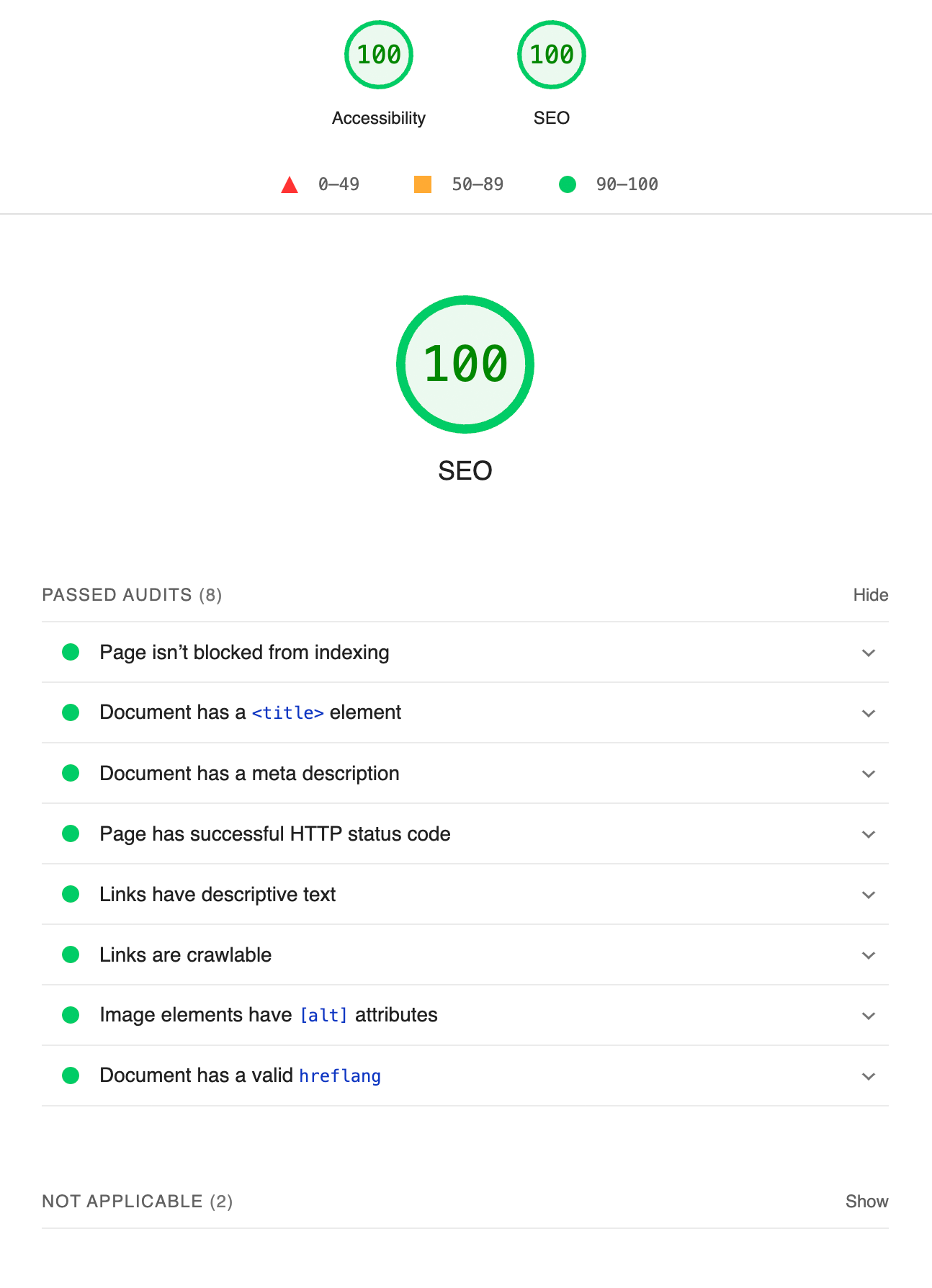
Improving your website's ranking can increase credibility, higher click-through rates, and more conversions. Users who find what they need quickly are likelier to stay on your site and engage with your content. Optimizing elements like image alt tags, title tags, and structured data ensures your website is search-engine-friendly and user-friendly.
Well-optimized alt tags help search engines understand your images, while title tags give users and search engines a clear idea of what each page is about. Structured data, on the other hand, helps search engines interpret your content more effectively, potentially leading to rich snippets that can improve your site's visibility in search results. Focusing on these elements can significantly enhance your site's SEO performance, ultimately attracting more visitors and driving more conversions.
Why Alt Tags, Title Tags, and Structured Data Matter
Alt tags, title tags, and structured data are critical to successful SEO strategies. Let's break down why each of these elements is so important:
- Image Alt Tags: Alt tags, or alternative text, are descriptions that you add to images on your website. They serve two important purposes:
- Impact on SEO: Search engines use alt tags to understand the content of images, which helps them index your site more effectively. Including relevant keywords in your alt tags improves your chances of ranking higher in search results.
- Impact on Accessibility: Alt tags are also crucial for making your website accessible to all users. Visually impaired users rely on screen readers to describe images, and well-written alt tags can significantly improve their experience on your site.
- Title Tags: Title tags are the headlines that appear in search engine results and browser tabs. They play a significant role in both SEO and user experience.
- Influence on Search Rankings: Search engines use title tags to determine the relevance of your content to a user's query. Including the right keywords in your title tags can help you rank higher in search results.
- Impact on Click-Through Rates (CTR): An engaging and informative title tag can make your page stand out in search results, encouraging more users to click through to your site.
- Structured Data: Structured data is a standardized format for providing information about a page and classifying the page content. It helps search engines understand your content better and can lead to rich snippets in search results.
- Rich Snippets: By adding structured data to your pages, you increase the chances of your content being displayed in rich snippets, which can improve your site's visibility and attract more clicks. Rich snippets can include star ratings for product reviews, product prices, and other helpful information to make your listing more appealing to users and increase your site's click-through rate.
Alt tags, title tags, and structured data form the backbone of an effective SEO strategy. Optimizing these elements helps search engines understand your content better and makes your site more engaging for users, leading to better search rankings and more traffic.
The Traditional Challenges of Optimizing SEO Elements
Optimizing alt tags, title tags, and structured data can be tedious and time-consuming, especially if you have a large website with many pages and images. Let's take a closer look at the challenges involved:
- Alt Tags: Adding descriptive alt tags to images is daunting, particularly for websites with hundreds or thousands of images. It requires you to accurately describe each image while incorporating relevant keywords, which takes time and attention to detail.
- Title Tags: Crafting compelling, optimized title tags for each page involves creativity and SEO knowledge. You must balance including the right keywords for search engines and making the title appealing to users. For websites with numerous pages, this can quickly become overwhelming.
- Structured Data: Implementing structured data manually is complex and requires a good understanding of schema markup. Adding structured data to each page demands technical expertise, and even minor errors in the code can prevent search engines from correctly interpreting your content. For many website owners, the complexity of structured data makes it challenging to implement effectively.
These challenges often mean website owners spend countless hours optimizing these elements or neglect them altogether, missing out on the potential SEO benefits. This is where Sitetag comes in as a game-changer, automating the process and making it easy for anyone to optimize their site without the manual hassle. Sitetag's AI-powered system can handle the tedious task of adding alt tags, crafting optimized title tags, and implementing structured data, saving you time and ensuring your site is continuously optimized for search engines.
Introducing Sitetag: The AI Solution to Automate SEO Fixes
Sitetag is an innovative solution that automates the SEO optimization process for websites. With just a single script tag, Sitetag crawls your site, analyzes its content, and makes intelligent optimizations to improve SEO elements such as alt tags, title tags, and structured data.
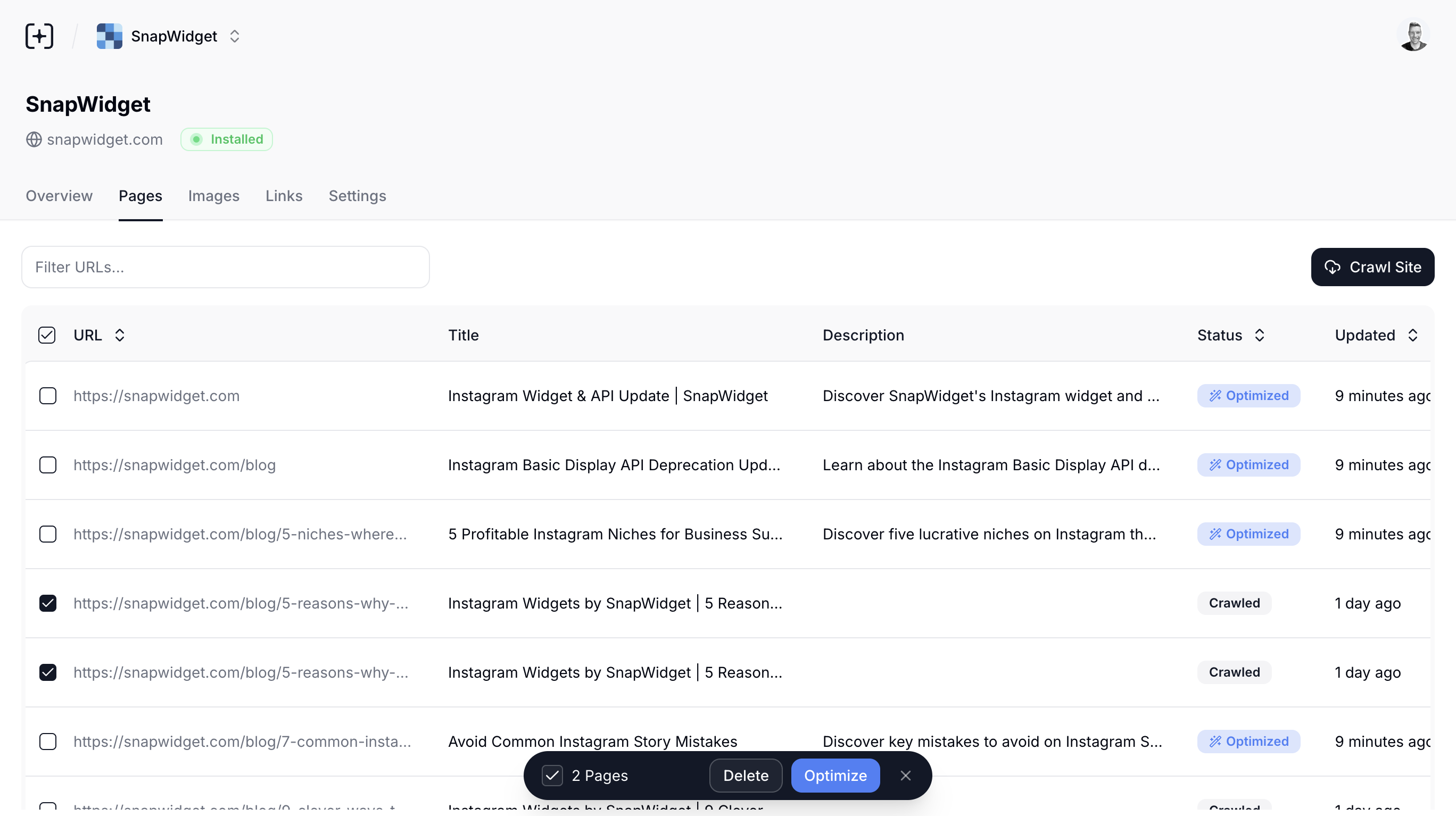
Here's how Sitetag works:
- AI-Driven Crawling and Analysis: Sitetag crawls your entire website, identifying opportunities for optimization. The AI-powered analysis allows Sitetag to understand the context of images, text, and other elements, ensuring the proper optimizations are applied.
- Automatic Alt Tag Generation: Sitetag uses AI to generate descriptive alt tags for images on your website. These tags are optimized for SEO and Accessibility, helping search engines understand your image content while making your site more accessible to visually impaired users.
- Optimized Title Tags: Sitetag creates compelling title tags optimized with relevant keywords, increasing your chances of ranking higher in search results. The AI analyzes each page to generate a title that is both engaging and SEO-friendly.
- Structured Data Implementation: Adding structured data can be challenging, but Sitetag makes it easy by automatically implementing rich structured data on your pages. This helps search engines better understand your content, increasing the likelihood of your site appearing in rich snippets.
With Sitetag, you can achieve all these optimizations without writing a single line of code. The script tag works seamlessly, optimizing your website in real-time and ensuring it always meets the latest SEO standards.
How Sitetag Makes SEO Optimization Easy
- Automatic Image Descriptions: Sitetag uses AI to analyze images and automatically generate optimized alt tags, ensuring that your images are well-described for search engines and users.
- Title Tag Optimization: The AI-driven system creates optimized and engaging title tags, improving search engine visibility and increasing the chances of users clicking through to your site.
- Structured Data Integration: Sitetag seamlessly adds rich structured data to your pages, helping search engines understand your content better and improving the chances of appearing in rich snippets.
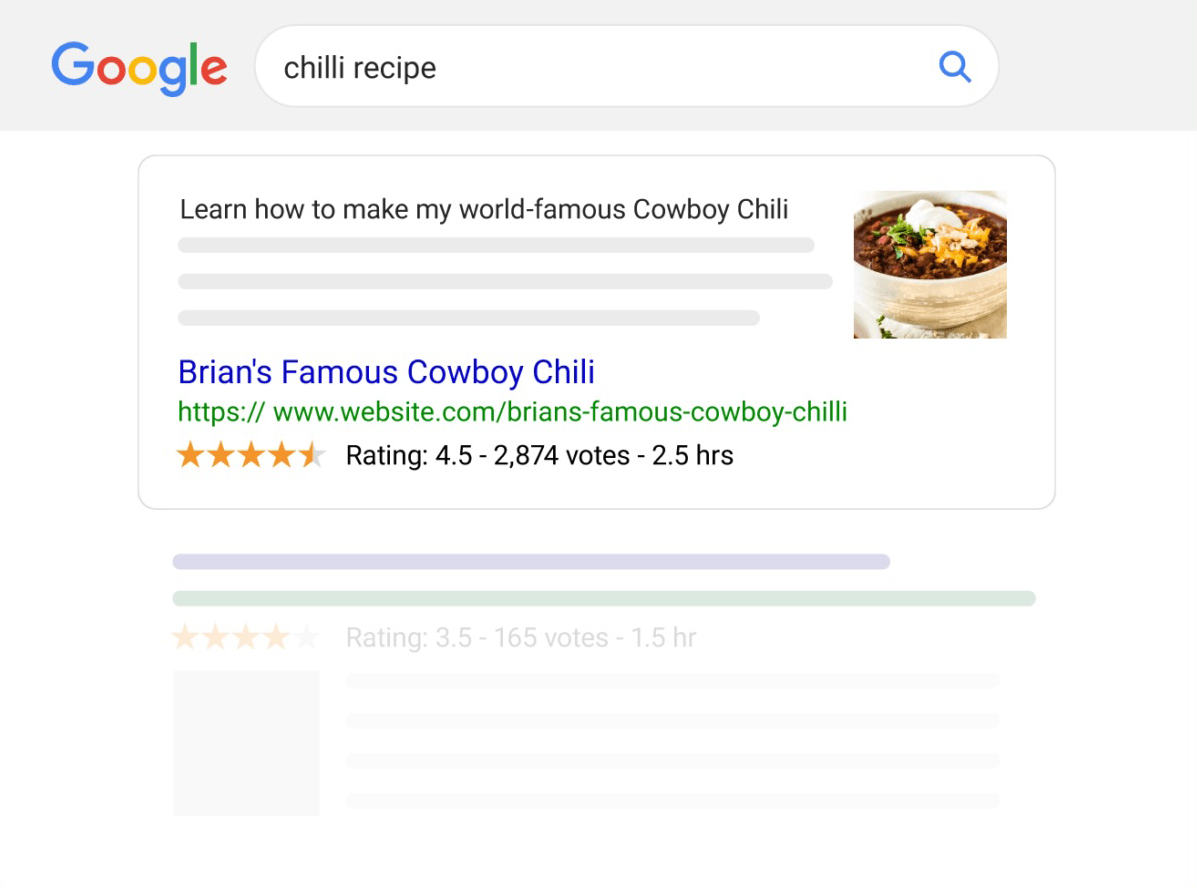
- Ease of Implementation: Adding the Sitetag script to your website takes just a few minutes. Once implemented, Sitetag immediately starts optimizing your site, saving you time and effort without requiring technical knowledge.
Benefits of Using Sitetag for Your Website's SEO
- Save Time and Resources: Automate tasks requiring manual effort and expertise.
- Boost Search Rankings: Optimized alt tags, titles, and structured data lead to better indexing and improved rankings.
- Improve Accessibility: Ensure images are described effectively for all users, improving the website experience.
- Stay Up-to-Date: Sitetag uses AI to adapt to changing SEO standards, ensuring your site stays optimized without constant manual updates.
How to Get Started with Sitetag
Getting started with Sitetag is simple. Here's how you can begin optimizing your site in just a few steps:
- Sign Up for Sitetag: Visit https://sitetag.ai and sign up for an account. The process is quick, and you can get started with a free trial to see how Sitetag can benefit your website.
- Add the Sitetag Script: Once you've signed up, you'll receive a small script tag. Simply add this script tag to your website's HTML. You don't need technical expertise; it's as easy as copy-pasting the script into your website's header.
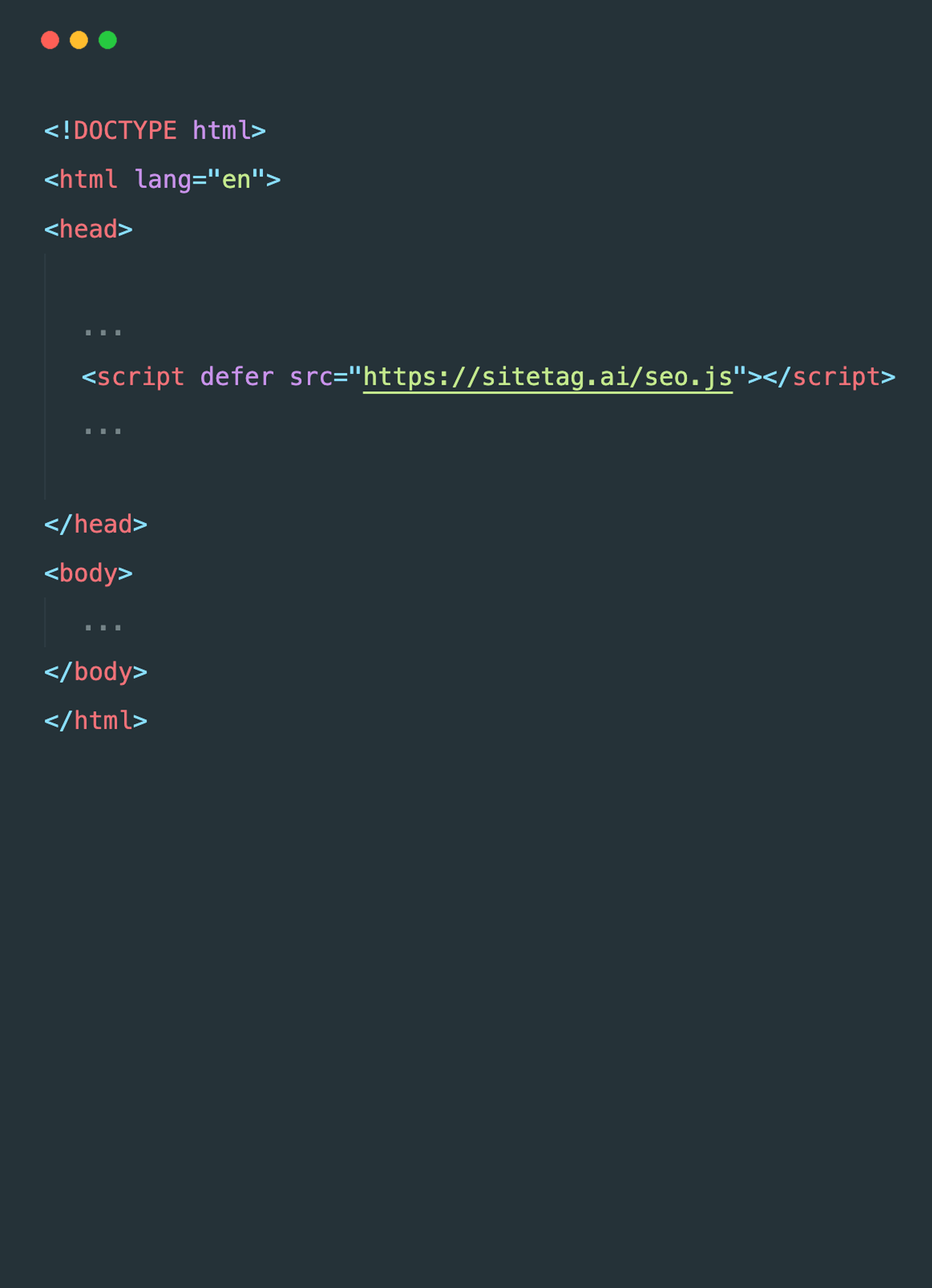
- Let Sitetag Work Its Magic: After adding the script, Sitetag will immediately start analyzing and optimizing your site. The AI-powered tool works in real time, ensuring your website's SEO is continuously improved without you lifting a finger.
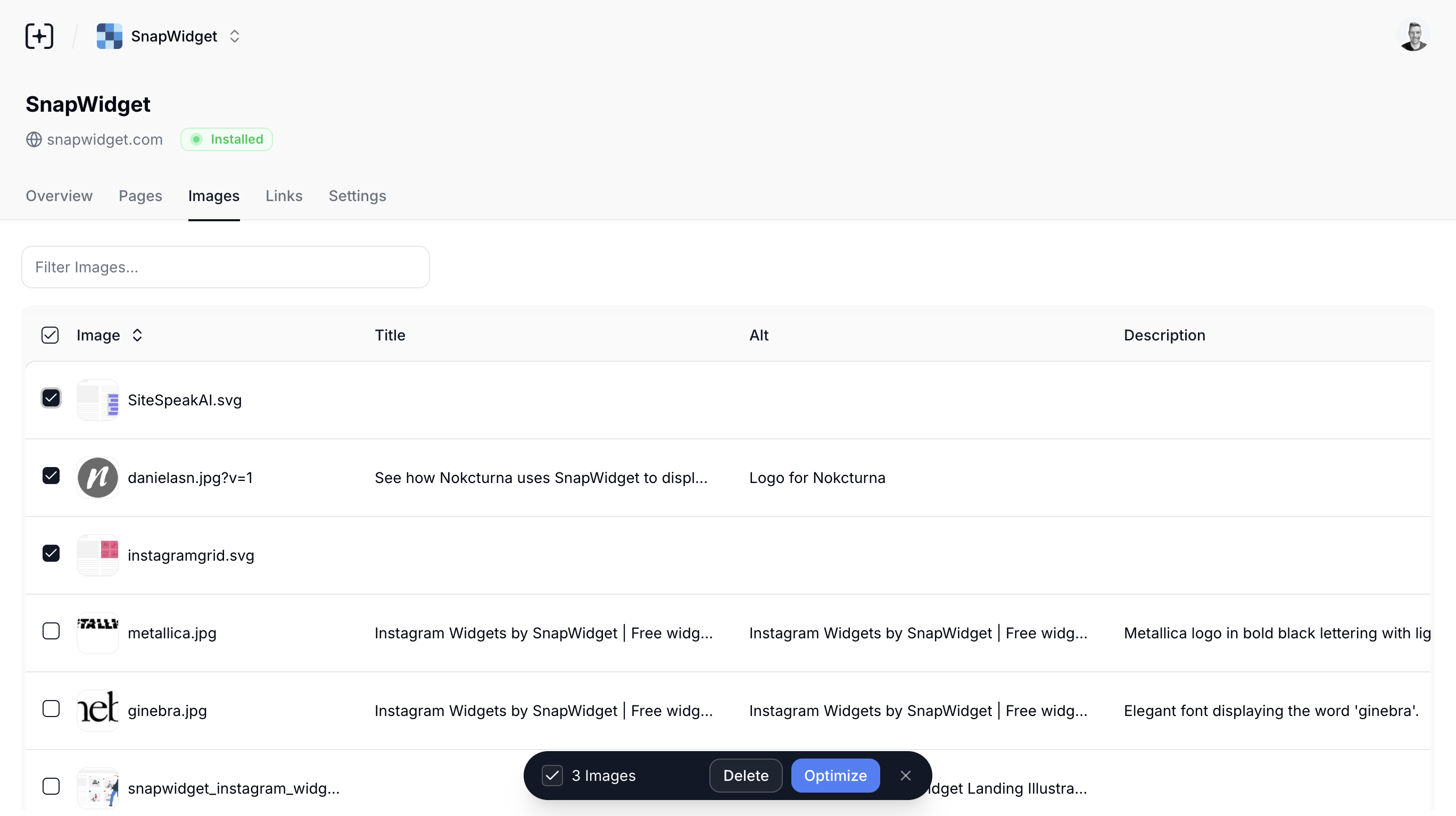
- Get Support When You Need It: Sitetag's support team is always available to help if you have questions or need assistance. We want to ensure you get the most out of your Sitetag experience.
Ready to simplify SEO? Visit https://sitetag.ai today and take the first step toward a fully optimized, AI-enhanced website.
Sitetag is here to transform the way you approach SEO. By automating essential SEO tasks like optimizing image alt tags, title tags, and structured data, Sitetag allows you to focus on what matters: creating great content and growing your business. With the power of AI, you can now ensure that your website is always search-engine-friendly and accessible to all users without the need for manual labor or technical expertise.
Using Sitetag means saving time, boosting your search rankings, and making your website more accessible to users while staying ahead of changing SEO standards. It's an effortless, effective way to maximize your website's potential.
Ready to improve your website's SEO? Try Sitetag today and see the difference AI can make!





